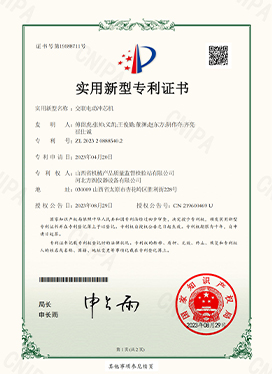custom dc insulation resistance tester
Understanding Custom DC Insulation Resistance Testers
In the realm of electrical engineering and maintenance, ensuring the integrity of insulation in electrical systems is crucial for safety and efficiency. One of the key tools in this domain is the DC insulation resistance tester, often customized for specific applications. This specialized equipment plays a vital role in analyzing the condition of insulation materials and ensuring they meet the required safety standards.
What is a DC Insulation Resistance Tester?
A DC insulation resistance tester, also known as a megohmmeter or insulation tester, is a device designed to measure the resistance offered by insulation materials to direct current (DC) voltage. It applies a high DC voltage across the insulation, and the resulting current leakage is measured to calculate insulation resistance. High resistance is a critical parameter, indicating that the insulation is effective at preventing electrical leakage and reducing the risk of electrical faults.
The Need for Customization
While standard insulation testers serve basic functions, many industries require highly specialized equipment tailored to their unique environments and specifications. Custom DC insulation resistance testers can be designed to suit specific voltage ratings, test durations, environmental conditions, and safety standards.
For instance, industrial settings with high voltage equipment may necessitate testers that operate at voltages of up to 5 kV or higher. In contrast, applications involving sensitive electronic components might require testers that can operate at lower voltages to avoid damaging delicate parts. Customization allows for the incorporation of features such as programmable test sequences, data logging capabilities, and connectivity options for easy data transfer and analysis.
Key Features of Custom DC Insulation Resistance Testers
custom dc insulation resistance tester

1. Voltage Range Custom testers can be designed to offer a range of test voltages from low voltage (100V) to high (up to 10kV or more), catering to various insulation materials and safety requirements.
2. Durability and Design For use in harsh environments, custom testers can be constructed from rugged materials to withstand physical shocks, moisture, dust, and extreme temperatures.
3. User-Friendly Interfaces Many custom testers are equipped with intuitive displays and user interfaces that simplify operation, making it easy for technicians to set up tests and interpret results.
4. Data Management Advanced models may include built-in memory for storing test results, along with software connectivity to facilitate data analysis and reporting.
5. Compliance with Standards Custom insulation testers can be designed to meet or exceed industry standards for insulation testing, ensuring that organizations comply with regulations.
The Importance of Regular Testing
Regular insulation resistance testing is essential for identifying potential insulation breakdown before it leads to equipment failures, electrical fires, or safety hazards. By using a custom DC insulation resistance tester, companies can proactively maintain their equipment and ensure the safety of their facilities.
In conclusion, custom DC insulation resistance testers are indispensable tools in maintaining the integrity of electrical insulation across various applications. Their ability to provide accurate, reliable, and specific measurements helps organizations safeguard their operations while adhering to safety regulations. As technology advances, the evolution of these testers continues, ensuring they remain aligned with the changing demands of the electrical industry.
-
Why the Conductor Resistance Constant Temperature Measurement Machine Redefines Precision
NewsJun.20,2025
-
Reliable Testing Starts Here: Why the High Insulation Resistance Measuring Instrument Is a Must-Have
NewsJun.20,2025
-
Flexible Cable Flexing Test Equipment: The Precision Standard for Cable Durability and Performance Testing
NewsJun.20,2025
-
Digital Measurement Projector: Precision Visualization for Modern Manufacturing
NewsJun.20,2025
-
Computer Control Electronic Tensile Tester: Precision and Power for the Modern Metal Industry
NewsJun.20,2025
-
Cable Spark Tester: Your Ultimate Insulation Assurance for Wire and Cable Testing
NewsJun.20,2025
 Copyright © 2025 Hebei Fangyuan Instrument & Equipment Co.,Ltd. All Rights Reserved. Sitemap | Privacy Policy
Copyright © 2025 Hebei Fangyuan Instrument & Equipment Co.,Ltd. All Rights Reserved. Sitemap | Privacy Policy
